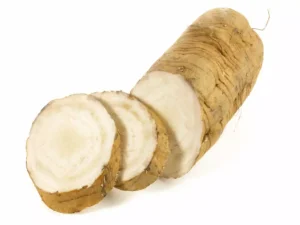
Because CBD products are not regulated, it’s difficult to say which products contain the amount of cannabinoids they claim to. CBD has anti-inflammatory and pain relief properties, and might be beneficial for some symptoms of chronic pain. Currently, one CBD product holds FDA approval, and the FDA has also approved three drugs that contain synthetic cannabinoids. The policies and regulations for medical use of cannabis may vary from state to state and require the supervision of a healthcare provider.
CBD Basics
Buying CBD products from a licensed dispensary can help ensure that a product is safe, as these establishments are regulated in states where cannabis is legal. Their products are tested in labs for contamination and clearly labeled with CBD dosage. You can also ask staff questions about products, how they work, and which ones might work best for you.
Medications changed by the liver (Cytochrome P450 2A6 (CYP2A substrates) interacts with CANNABIDIOL (CBD)

Because CBD comes from a plant, it is susceptible to chemicals like pesticides. A 2017 study reported that only 31% of CBD products sold online were correctly labeled. Most had less CBD in them than was advertised, and 21% had significant amounts of THC. While some believe that broad- and full-spectrum products provide more health benefits, there’s a lack of evidence to support these claims. Federal law allows the sale of hemp-based CBD oil (with 0.3% or less THC content) in all states. The interactions between these medications and CBD may be mild, and you might not have to change your treatment.

What Are The Side Effects of CBD?
Many CBD products are unregulated, so it’s best to buy products from a licensed dispensary or talk to your doctor about how to amphetamine addiction treatment use them. People claim CBD has helped with a slew of health conditions—including back pain, psoriasis, osteoarthritis, and even cancer. However, the only CBD medication that is currently approved by the FDA is Epidiolex (cannabidiol) for the treatment of certain types of epilepsy, a neurological disorder that causes seizures. Generally, though, little unbiased evidence supports any claims about CBD’s possible benefits. The strongest evidence of CBD’s effectiveness, though, is in relation to epilepsy.
Pain
Some drugs can affect your blood levels of other drugs you take, which may increase side effects or make the medications less effective. However, some individuals experience side effects, which can include diarrhea, dry mouth, drowsiness, changes in appetite and mood, nausea, and liver disease. CBD is known to interact with certain medications, particularly antidepressants, antiepileptic drugs, and anticoagulants such as warfarin. Studies in animals indicate that CBD is toxic to the male reproductive system and may harm the development of offspring born to mothers who are exposed to CBD during pregnancy. The discovery of the endocannabinoid system has significantly advanced our understanding of health and disease. The FDA, which has the authority to regulate all cannabis compounds, including those derived from hemp, does not allow CBD products to be marketed as dietary supplements.
- If you buy CBD, it is safest to make sure that there is independent laboratory testing as attested to by a COA (certificate of analysis) that should accompany every CBD product.
- Over millennia, humans have learned this plant’s commercial value and medicinal applications.
- You can manage this risk by only taking CBD under the supervision of your doctor.
- A third party is a reputable independent organization with no ties to the company selling the product.
- However, some states, including Indiana and Utah, require cannabis products to be tested for potency and purity.
Foods and beverages
When talking about hemp, we’re referring to the low-resin industrial crop commonly used to make clothing, textiles, food, and other materials. And in this context, we’re using the word cannabis to describe the high-resin plants that are grown specifically for medical consumption or enjoyment. The molecule itself is the same regardless of its source plant, but there are still important differences between hemp- and cannabis-derived CBD products. Look for broad-spectrum CBD oils or CBD isolates—these two product types have THC stripped out, but maintain the presence of other cannabinoids and compounds found in the plant. The relationship between CBD and sleep isn’t well understood yet. So far, it appears that dosage plays a role, with higher doses appearing to be more effective than lower doses.
THC is psychoactive, which means it can change how your brain functions. It gives the feeling of being “high” from marijuana and other cannabis products. Common side effects that accompany CBD use tend to be mild and can include dry mouth, diarrhea, sleepiness, loss of appetite, and low blood pressure. While numerous studies have explored cannabinoids as a potential painkiller, the results have often been unreliable or insignificant. Anxiety disorders can make it difficult to fall asleep, and people with insomnia can develop anxiety about sleep itself. It’s unclear if CBD helps with both anxiety and sleep, or if people simply sleep better when they are less anxious.
However, CBD products containing more than 0.3% THC still fall under the legal definition is cbd addictive of marijuana, making them illegal at the federal level. Some states have legalized CBD, so be sure to check state laws, especially when traveling. Also, keep in mind that the FDA has not approved nonprescription CBD products, and some products may be inaccurately labeled. If you live in a state that hasn’t yet legalized medical cannabis or these products are unavailable, you can still benefit from products containing industrial hemp-derived CBD. In a 2022 clinical trial, 14 people with anxiety were given high levels of CBD under the tongue, for four weeks, three times per day. They reported less anxiety and better mood, sleep, and quality of life, and showed no serious negative side effects.
- CBD oil may also come in a gelcap that you swallow like a supplement, with effects that take a bit longer to kick in.
- Cymbalta (duloxetine) is used to treat major depressive disorder, general anxiety disorder and …
- No content on this site, regardless of date, should ever be used as a substitute for direct medical advice from your doctor or other qualified clinician.
- In doing so, CBD alters the ability of THC to bind to the receptors and thereby potentially impacts THC activity by both reducing psychoactive effects and enhancing side effects.
- Once a fringe health trend, CBD has become so mainstream that you can buy products with it at pharmacies, grocery stores and countless online retailers.
- However, CBD has drawn an increasing amount of scientific interest as a way to manage certain sleep disorders and health conditions that may affect sleep.
- Given CBD’s reputation as a popular, artisanal remedy, one would think that Epidiolex would command a lot of “off label” attention.
No identifying information will be included in any reports, all responses will be summarized and aggregated to reduce the risk you might be identified. Your daily habits and environment can significantly impact the quality of your sleep. Take the Sleep Quiz to help inform your sleep improvement journey.


Beyond anxiety and pain relief, CBD is also being investigated for its potential neuroprotective properties. Some research suggests that CBD may have applications in treating neurological disorders, including epilepsy and multiple sclerosis. The FDA has even approved a CBD-based medication called Epidiolex for treating rare forms of epilepsy in children.